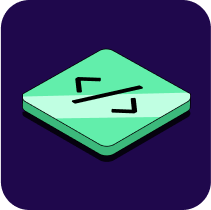What is an SDK (software development kit)?
A software development kit (SDK) is a ready-to-use set of tools, libraries, and documentation that API platforms provide to facilitate app creation.
Also called a devkit, an SDK simplifies and expedites the development process. It provides a standardized set of pre-built components, functionalities, and resources. Offered by a software provider to facilitate creation of apps for its specific platform, an SDK often includes APIs that enable integration so that different apps can effectively relay information and work together.
Components included in SDKs
Code samples: Code snippets and concrete examples of an app that showcase how to use the SDK in different scenarios.
Code libraries (frameworks): Pre-built code sequences that provide certain functionalities (e.g., user authentication or data processing) that developers can use repeatedly to shortcut development.
Tools: Debuggers, emulators, testing frameworks, and additional tools that help developers to build, test, and launch applications quickly.
API documentation: Detailed instructions that explain how to use the SDK, its functions, methods, parameters, and more.
Benefits of SDKs
Simplicity: SDKs contain all the parts and instructions needed for developing apps for a specific platform without delving into the technical details, helping to save time.
Access to new features: SDKs are updated automatically whenever new features are added to a platform, providing access to the latest capabilities without much effort.
Faster to market: SDKs save developers time by providing pre-built components and tools, eliminating the need to build from scratch.
Consistency: SDKs promote a standardized approach to coding and design patterns, resulting in a more uniform codebase that promotes understanding and collaboration among developers.
Documentation and support: SDKs come with detailed documentation, tutorials, community support, and other resources that help developers get guidance, troubleshoot issues, and overcome roadblocks.
Enhanced user experience: SDKs often include user interface (UI) components as part of a UI kit, helping developers create a more visually appealing, user-friendly app experience without coding these elements from scratch.
Cost savings: SDKs eliminate the need to build features from scratch, saving organizations time and resources by reducing development hours.
Built-in compliance: Many SDKs are designed to adhere to industry standards for compliance and best practices for security.
Optimized features: SDKs are usually developed by domain experts, giving developers the benefit of expertise from those who’ve already solved common challenges and optimized solutions.
Multiple integrations: SDKs often integrate with other tools in the same ecosystem (e.g., the Facebook SDK), allowing seamless integration with other products and services.
The two types of SDKs
Native SDKs: An SDK that allows developers to write code for a single platform using the platform's native programming language and tools. For example, Google’s Android SDK can be used to develop an Android app, but developers would have to start over to create the same app for Apple’s iOS. The need to maintain two codebases extends the timeline and cost of development. However, the closer integration of a native SDK allows for better performance, responsiveness, a more consistent user experience, and full access to platform-specific features and optimizations.
Cross-platform SDKs: Favored for their cost-efficiency and faster development time, cross-platform SDKs allow developers to write code once and deploy it across multiple platforms, such as iOS and Android. In other words, a cross-platform SDK allows you to develop an Android app, and then use the same codebase to develop an Apple iOS app. As for drawbacks, cross-platform SDKs can be less customizable, compatible, and performative than native SDKs because they’re not native to the platform. They offer advantages in code reusability, cost efficiency, and development speed.
Overall, an SDK is a helpful toolkit for developers. It provides a complete set of standardized functionalities that allow developers to focus on creating a high-quality app rather than starting from scratch. Sendbird and other leading in-app communications platforms offer SDKs for various platforms, helping businesses to quickly launch new capabilities without hurdles.

Try Sendbird
Build your in-app communications without the challenge.

